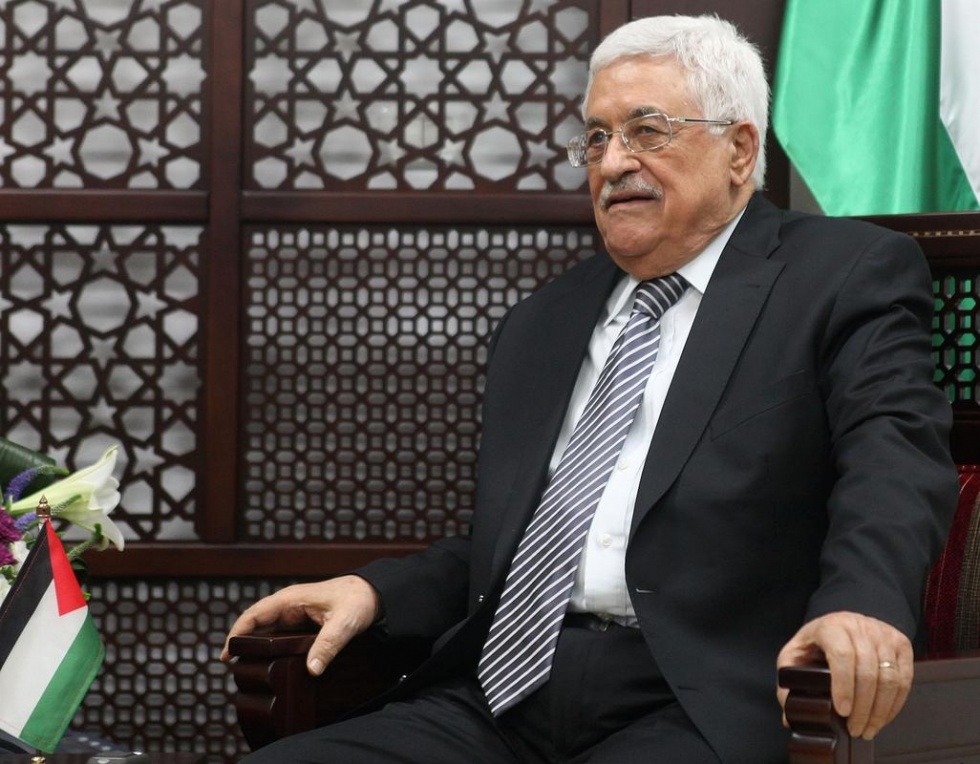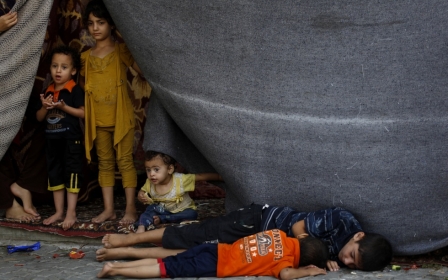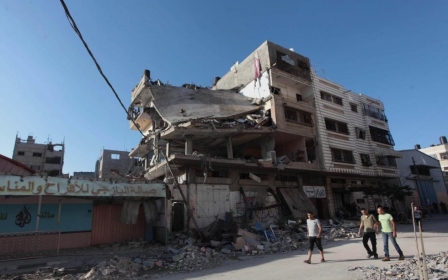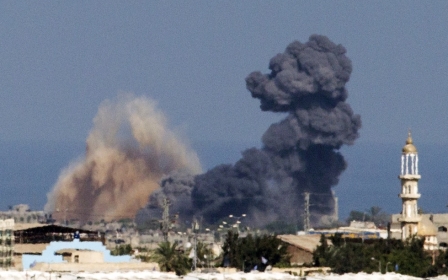Mahmoud Abbas' epiphany over Gaza

Mahmoud Abbas is having something of an epiphany. Only two short months ago, the Palestinian president said security co-operation with Israel in the West Bank was "sacred". Now Abbas is quoting a Koranic verse which says" Permission [to fight] has been given to those who are being fought, because they were wronged. And indeed, Allah is competent to give them victory."
What has happened to him since he said in a speech in Jeddah, shortly after the kidnap and murder of three young settlers: "The security coordination with the Israelis is for our own benefit, to protect our own people,"? What indeed has happened to the PLO which issued a statement after an emergency meeting in Ramallah chaired by Abbas which praised :"the resolute stand of the great Palestinian people and the forces of resistance that are fighting heroically against the occupying army that is committing crimes and slaughtering our compatriots"?
What conversion has Saeb Erekat, the Palestinian Chief Negotiator, miraculously undergone? He now says that every Palestinian is a target of Israel. Could this be the same Erekat who, according to the Palestine Papers, offered his counterpart Tsipi Livni, the "biggest Yerushalayim" in history?
Strange things are happening in that part of the West Bank which Erekat has not bequeathed Israel as another fact on the ground. Hamas flags were seen in the 30,000 strong march which converged on Qalandiya checkpoint on Thursday night. The loudspeakers of mosques called Palestinians to the demonstration. Those lines of Palestinian Authority riot police seemed less willing to stand between the demonstrators and the lines of Israeli police and border guards.
Abbas himself has come under a torrent of internet abuse from the ranks of his own constituency since his Jeddah speech. Amira Hass quoted in Haaretz a Fatah member who is a resident of a refugee camp and a former prisoner as saying that only ten per cent of Palestinians now support the ageing president. There has even been reports that his wife and grandchildren have fled Ramallah for Amman.
What is happening to Abbas is a political earthquake. The veteran PLO fighter may spin the new pro-Hamas line from Ramallah as an attempt to strengthen himself as a negotiator. This, too, is a difficult space for Abbas to inhabit. His closest Arab partner Egyptian president Abdel Fattah al-Sisi is behaving even worse than Netanyahu is - not only by holding up aid on the Egyptian side of the border, but by urging the Israeli prime minister to finish Hamas off militarily once and for all. Without Sisi's and King Abdullah's daily voices in his ear, it is doubtful that Netanyahu would have acted so decisively in Gaza. Abbas's allies damn him with the people who matter, the Palestinian street, because they are an essential part of the Israeli assault on Gaza. Sisi is the prison warder who keeps the door closed as Israeli guests beat the inmates up. Be it as president or negotiator, Abbas's stock is plummeting as each day passes.
As the death toll in Gaza gallops towards the four figure mark, few have stopped to think of the effect the operation will have on the unity deal which the military operation tried to smash.
When the unity deal was signed, Azzam al-Ahmed member of Fatah's Central Committe whispered that "Hamas had taken off all their clothes", meaning that Hamas had surrendered too much, and certainly all authority over Gaza. Initially, Khaled Meshaal was thought to be have paid too high a price . The deal was unpopular in his own movement (particularly in the West Bank ) and that discontent crescendoed when Abbas refused to pay the 50,000 government workers in Gaza who stayed loyal to Hamas.
Hamas seemed to have emerged from the deal the weaker partner, betrayed once again, in their eyes, by Abbas's lack of faith. Today, the position is reversed for two reasons.
The unity government broke the psychological barrier between Hamas and the PLO and presented the fleeting vision of a unified nation. The all out war that the Israel army has declared on Gaza has only cemented that unity. If disunity had been one of the reasons preventing a third intifada from starting, that obstacle is no longer there. It still may not materialise, but after this week's scenes in the West Ban , no one can dismiss it as preremptorily as they once did. It is now a real possibility.
If this unity does now exist, who stands to gain ? In war, that role falls now to Hamas for their response to the Israeli operation. In peace, Abbas and the PLO may now have to make way for a new leader capable of representing all factions.
Abbas can make a series of feints like pressing ahead with membership of UN institutions , and taking Israel to the International Criminal Court. But the margin of error for the arch political survivor is narrowing. When the ceasefire comes, Hamas be naked no more . It will be fully clothed in military fatigues, as Abbas himself once was.
- David Hearst is editor-in-chief of Middle East Eye. He was chief foreign leader writer of The Guardian, former Associate Foreign Editor, European Editor, Moscow Bureau Chief, European Correspondent, and Ireland Correspondent. He joined The Guardian, from The Scotsman, where he was education correspondent.
The views expressed in this article belong to the author and do not necessarily reflect the editorial policy of Middle East Eye.
Photo credit: Palestinian President Mahmoud Abbas (AA)
New MEE newsletter: Jerusalem Dispatch
Sign up to get the latest insights and analysis on Israel-Palestine, alongside Turkey Unpacked and other MEE newsletters
Middle East Eye delivers independent and unrivalled coverage and analysis of the Middle East, North Africa and beyond. To learn more about republishing this content and the associated fees, please fill out this form. More about MEE can be found here.





